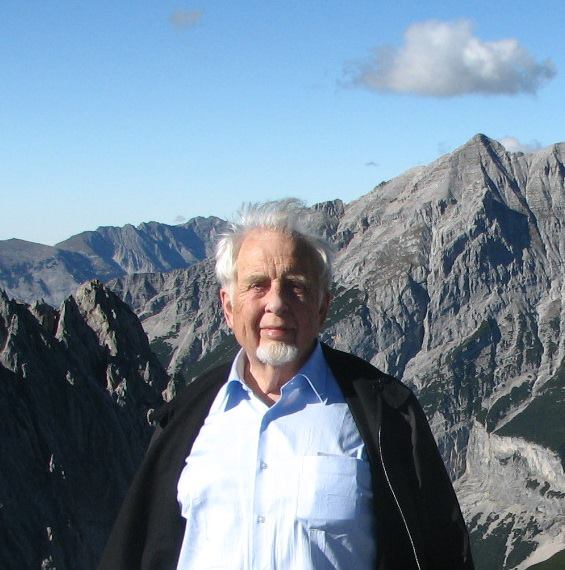Department of Biology
Dr. Keith Garlid is a biomedical scientist whose research has focused on mitochondrial physiology and bioenergetics and is internationally recognized for his work on mitochondrial ion transport proteins. These transporters regulate mitochondrial volume, pH and Ca2+, and thereby provide the physiological milieu essential for ATP synthesis and energy metabolism. A broad overview of this approach can be found in a chapter in "The Handbook of Cell Physiology", entitled "Mitochondrial physiology". We are interested in an integration of the basic biochemistry, biophysics and molecular biology of mitochondria with cell and organ physiology, including application to human health and disease. The research described has been funded for many years by grants from the National Institutes of Health.
The mitochondrial potassium cycle and its role in the heart
The mitochondrial KATP channel (mitoKATP) and K+/H+ antiporter play the role of volume regulation in mitochondria. Our work on mitoKATP has led to dramatic new findings. It has been known for some time that K+ channel openers, which are specific for KATP channels, protect the heart from ischemic damage, whereas KATP-selective blockers promote ischemic damage. It was assumed that these drugs act on the plasma membrane KATP channel. We have shown, however, that mitoKATP is the receptor for these effects (Garlid, et al, 1997). This discovery has had a major impact on the field of ischemia-reperfusion research and the role of mitoKATP in heart continues to be a major focus of our research.
Mitochondrial uncoupling proteins (UCPs) and obesity
The UCPs catalyze proton back-flux into the mitochondrial matrix, thereby dissipating energy and producing heat. We have been a major laboratory in the study of UCP1, which is expressed solely in brown adipose tissue, an organ specialized for thermogenesis. These studies include working out the mechanism by which the UCPs catalyze proton transport. Since 1998, 5 new uncoupling proteins have been discovered, including 4 new mammalian UCPs. We were the first laboratory to demonstrate that recombinant UCP2 and UCP3 are true uncoupling proteins. It turns out that the UCPs appear to be involved in the prevention of metabolic syndrome, the epidemic health problem that includes diabetes, hypertension, obesity, and atherosclerosis.
The mitochondrial calcium cycle and calcium signaling
The calcium cycle consists of the mitochondrial Ca2+ channel, the Ca2+/Na+ antiporter, and the Na+/H+ antiporter. We have published several papers demonstrating reconstitution of these proteins in liposomes.
Dr. Garlid and his colleagues have also worked on other transport mechanisms in mitochondria, including transport of spermine and other polyvalent cations. Dr. Garlid coined the term "IMAC" for the inner membrane anion channel of mitochondria. Dr. Garlid is also known for his work on the physicochemical state of water in mitochondria and other biological systems, and on the importance of volume regulation in mitochondria.
Dr. Garlid has also done work in basic bioenergetics, and is the invited author of a chapter entitled "Chemiosmotic theory" for a new Encylopedia of Biochemistry. Through his work on mitochondria, Dr. Garlid has been privileged to become friends with many scientists working on mitochondria, including Peter Mitchell, the 1978 Nobel laureate for his brilliant insights in describing the chemiosmotic mechanism of oxidative phosphorylation. Dr. Garlid was with Dr. Mitchell when he died, and he was invited to write personal appreciations by scientific journals and by the Mitchell family.
